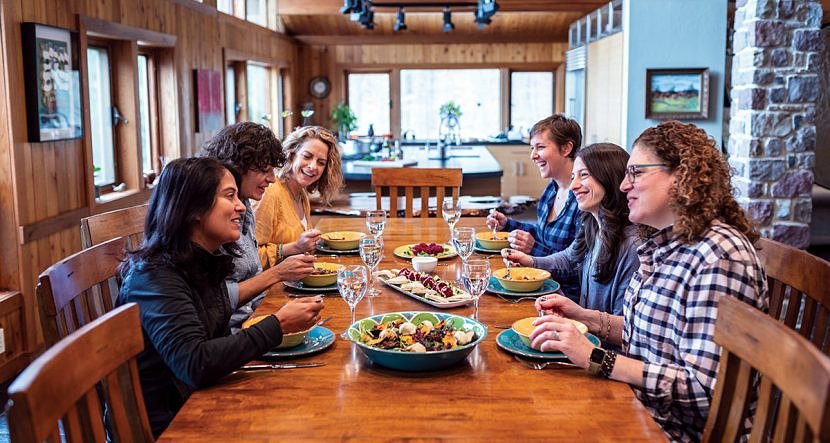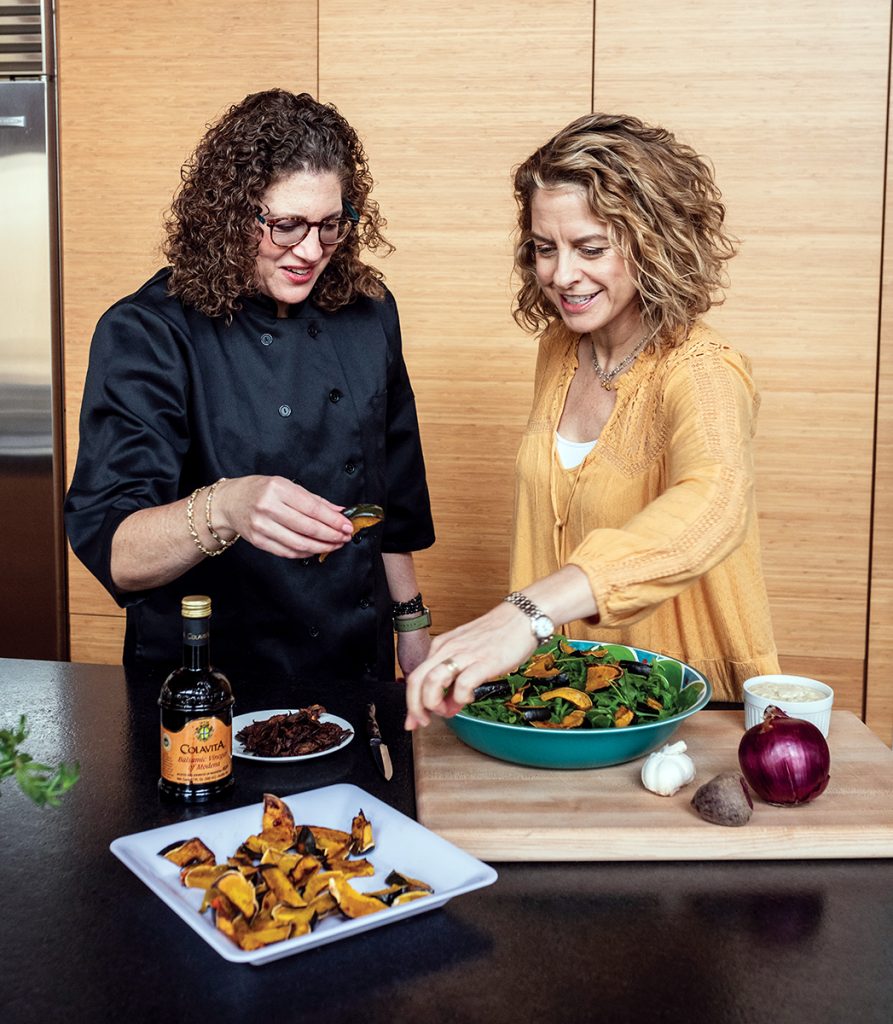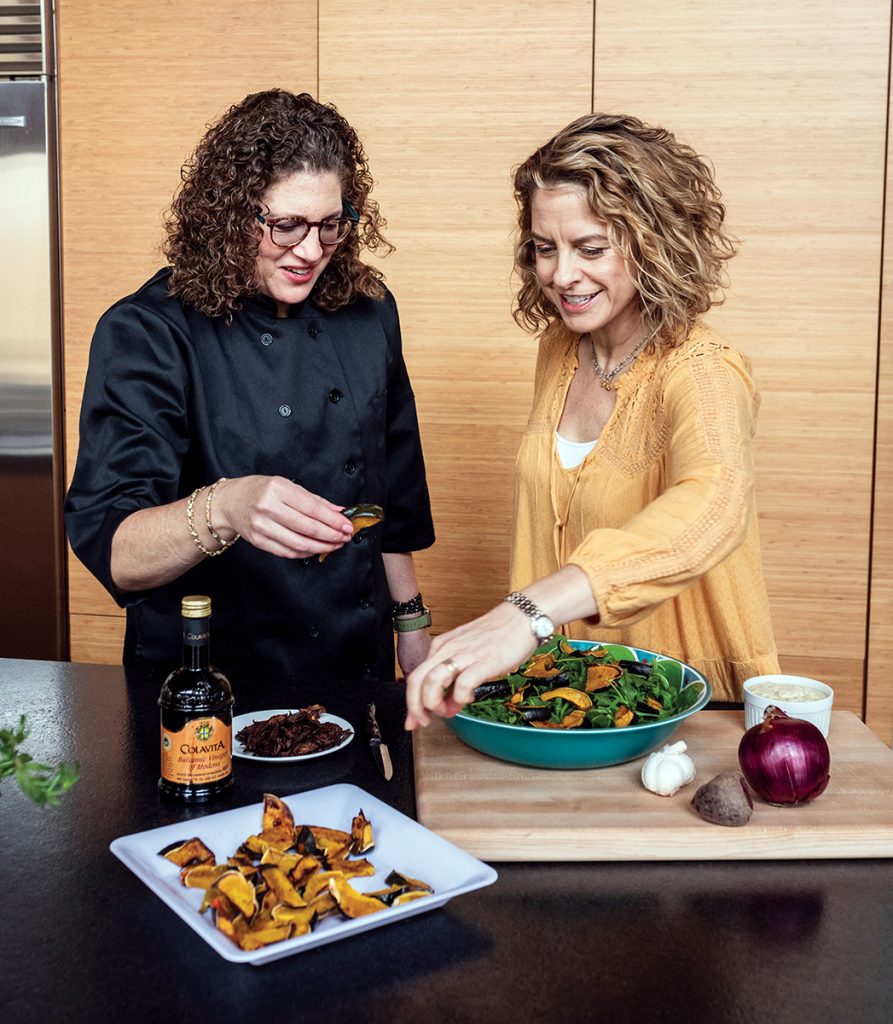The Miraculous (and Delicious) Virtues of a Plant-Based Diet
One woman’s quest to combat her genetics by adopting a plant-based diet and (gently but passionately) encouraging others to do the same.

Tue 19 Feb 2019
One woman’s quest to combat her genetics by adopting a plant-based diet and (gently but passionately) encouraging others to do the same.
Having already lost her dad in 2007 to lung cancer, when her mom was diagnosed with bile duct cancer in 2012, Lauren Gladstone needed to do something. She went in search of information about food that would help her understand whether her family’s diet had contributed to cancer and in what measure. In addition to that, she wanted to find a diet to best support her mother, who was going through chemo and radiation. But she also had grave concern for her genetic profile, which suddenly looked quite ominous.
As she started researching a variety of diet trends and culling through scientific studies, she discovered her mother, who was born and raised in Holland, ate a diet throughout her life that likely contributed to her cancer. While it would have been broadly considered a well-balanced diet—with proteins, vegetables, and starches on her plate each night for dinner—the butter, cheese, and other dairy prominent in her mother’s diet asked her bile ducts to work overtime.
After her mom died in 2013, Gladstone became ravenous for information, which led her to a documentary called Fat, Sick, and Nearly Dead. The title caught her attention, and on a train ride down to Washington, DC, she watched it, an experience that changed her life. The 2010 film followed Australian Joe Cross, who was morbidly obese and struggling with an autoimmune disease, as he traveled across the United States talking to people about their diet while he challenged himself to drink only fruit and vegetable juice for 60 days. Under the care of Dr. Joel Fuhrman, he endeavored to lose weight and regain his health. He subsequently adopted a plant-based diet, and not only did he lose 100 pounds, but he was able to discontinue all his medications.
“It freaked me out,” says 50-year-old Gladstone, now a chef and plant-based educator based in Upper Dublin, Pa. “For me it was instantaneous. I stopped eating all meat. I started to really educate myself.”
In addition to getting certified on plant-based nutrition through Main Street Vegan Academy and becoming a certified vegan educator, she attended lectures and watched documentaries. Another significant part of her education came through a thorough reading of The China Study, a 417-page book based on one of the largest comprehensive studies of human nutrition ever conducted. In the 13 years since the book was originally published, it inspired President Bill Clinton to become vegan and inspired vegan documentaries, blogs, and books.
The China Study states, “There are virtually no nutrients in animal-based foods that are not better provided by plants. Protein, fiber, vitamins, minerals—you name it, they’ve got it, along with major health benefits.” On the other hand, the book clearly demonstrates that animal protein promotes the growth of cancer. “It was like a lightbulb went off,” Gladstone says. “The way I thought about it was that I’d rather stack the odds in my favor. There are no guarantees in life, but if I know certain things cause cancer, why would I eat them?”

Real Woman magazine editorial photoshoot with nutritionist Lauren Gladstone
Planting the Seed
The more Gladstone learned about the nutritional benefits of a plant-based diet and the drawbacks of a carnivorous one, the greater her desire to educate others to migrate to the same kind of eating. She soon discovered that eating a plant-based diet was not only good for her health and that of her family, but it benefited the environment and was clearly kinder to animals. “When people call themselves vegans, they do it for many different reasons—animal cruelty or health—but no matter what avenue brought you there, it’s really hard to ignore the other facets,” she says. “Most people don’t realize the impact that animal agriculture has on the environment or the impact it’s having on their health.”
When she shares what she’s learned on her blog (coolasacuke.com), on social media, and at Rise Gathering retreats and events, the objections usually come in the form of pragmatic pushback. People often tell her they don’t have time for the complexity and meal planning that come with a plant-based diet. “I don’t understand it because people will take the time to exercise or get their hair done, but when it comes to food they say they don’t have the time,” Gladstone says. “So much of this is about changing the way we think about food. We are used to thinking about food as being segmented—a protein, a veggie, and a starch, for example—but so much of what we do with plant-based foods is one-bowl meals and a focus on what we eat over the course of the day, as opposed to meal-by-meal intake.”
Despite the detractors, veganism is catching on in the United States. A 2017 report found that 6 percent of people in the United States now identify as vegan, compared with just 1 percent in 2014. The number is comparatively low to other countries, but Gladstone admits giving up dairy can be challenging. She struggled to let go of ice cream and cheese, especially, but according to data gathered from published articles in databases such as MEDLINE, science direct, Google Scholar, and Web of Science, the hormones in dairy are increasingly concerning.
In the last few years, growing evidence indicates another property of hormones in dairy products as having impact on human health, including the provocation of breast, prostate, and endometrial tumors.
Therefore, whatever sacrifices Gladstone encounters related to her plant-based diet are far exceeded by the numerous health and environmental benefits. “I get it. It’s not easy. Food is personal. Women are sometimes turned off or overwhelmed by adopting new habits because it makes them feel bad about what they are currently doing,” Gladstone says. “But I promise that you will turn your can’ts into cans when you start feeling good.”

Real Woman magazine editorial photoshoot with nutritionist Lauren Gladstone
You Can Hack It
Gladstone believes in taking as many shortcuts as possible without sacrificing nutrition or flavor. Here are her favorite hacks for getting the job done quicker:
1. Unbleached parchment paper is your new best friend. Line the tray before roasting veggies for easy clean-up.
2. Keep plenty of pre-cut frozen, chopped vegetables in your freezer. Frozen veggies are picked when they are ripe, so they don’t lose their nutritional value. Having them on hand makes every meal less of a chore.
3. Use canned beans instead of raw. The benefit of raw beans is that they’re cheaper, but it means you have to soak them overnight. Tip: You can also buy frozen grains at most grocery stores, which means you can cook quinoa or couscous in a flash
.4. Stock up. The staples of most plant-based diets include soy sauce, nutritional yeast, rice vinegar, sesame oil, vegetable stock, beans, and spices. Put those items on your next shopping list, and you’ll be ready to get cooking.
5. Batch cook. It’s so helpful to cook larger quantities at a time. You’ll have leftovers and save yourself time.